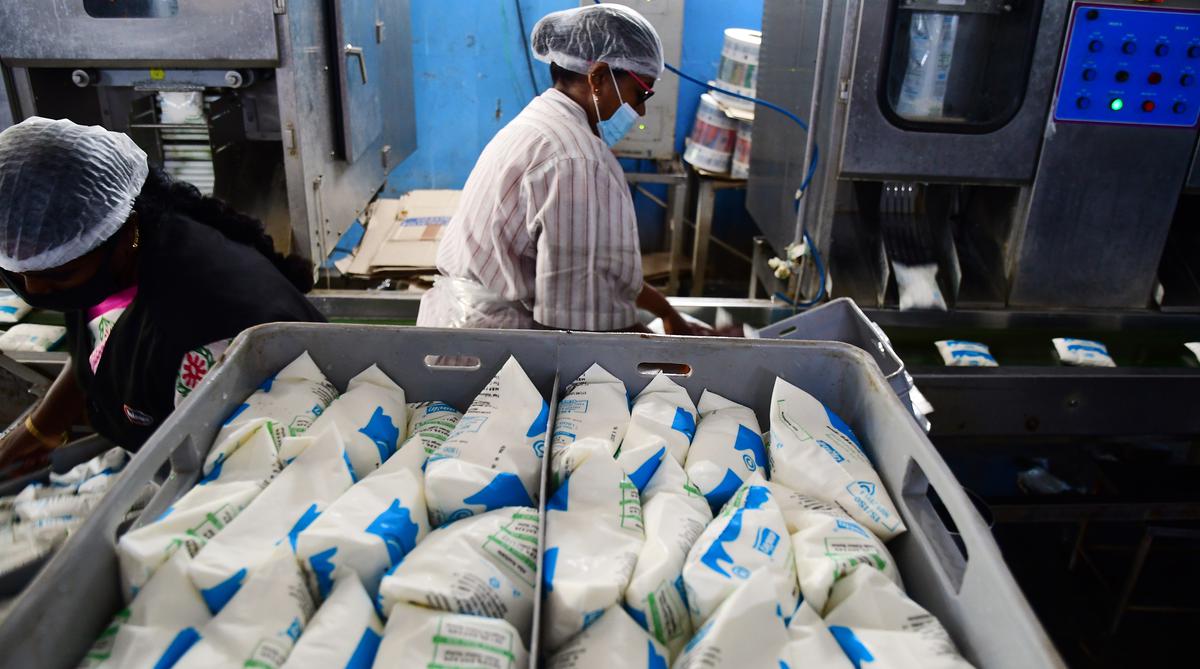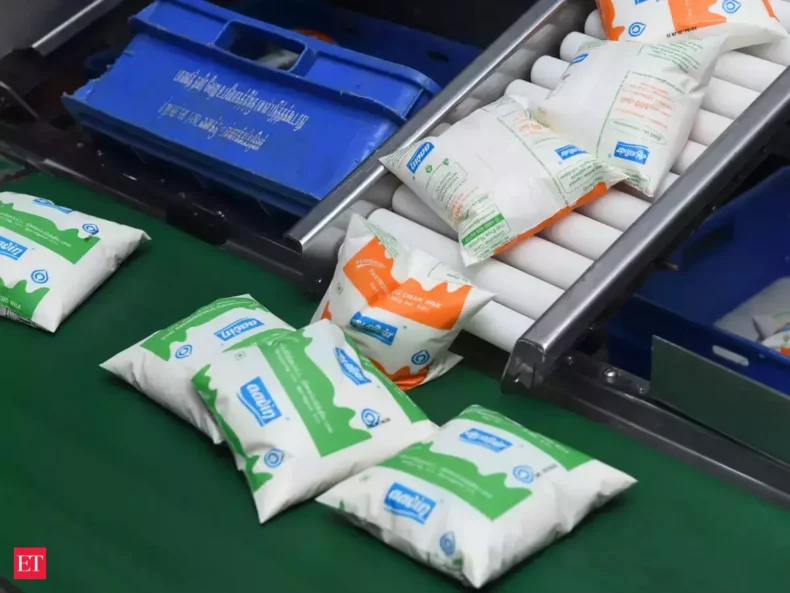Amul, a dairy company with headquarters in Gujarat, has been accused of interfering with Aavin, which is administered by the Tamil Nadu Co-operative Milk Producers Federation, less than a month after Amul was seen at odds with Nandini, a dairy company with headquarters in Karnataka.
Tamil Nadu Chief Minister M.K. Stalin wrote to Union Home Minister Amit Shah demanding that Shah give Amul immediate and direct instructions to cease milk acquisition operations in Tamil Nadu. Stalin asserted that Amul had established freezing facilities and a manufacturing unit in the Krishnagiri district using its multi-state cooperative license, thereby creating unfavourable competition with Aavin.

Stalin’s Main Arguments Against Amul
In the letter addressed to the Minister of Home Affairs, the Chief Minister stated that it has been a customary practice in India to allow cooperatives to flourish without encroaching on one another’s milk-shed space. Given the current milk scarcity situation in the nation, such cross-procurement violates the tenets of Operation White Flood and would make consumer issues worse. The milk shed area of Aavin (TN Co-operative Milk Producers Federation), which has been developed over many years in a truly cooperative spirit, was infringed upon by AMUL through this intrusive move.
Mr. Stalin voiced his anguish with regards to Amul’s actions which might potentially invigorate unhealthy rivalry among dairy cooperatives that are actively enrolled in the task of selling and procurement. He also stated that Amul planned to buy milk from Self Help Groups and Farmer Producer Organisations in various districts of Tamil Nadu.
The cornerstone of the development of the dairy industry in Tamil Nadu has been regional cooperatives since they are better suited to assist producers, include customers, and shield them from arbitrary price rises. Since 1981, a three-tier dairy cooperative system has successfully served the needs of rural milk producers and consumers in Tamil Nadu. Therefore, Mr. Stalin demanded quick intervention from Shah to order Amul to stop obtaining milk from the dairy-producing regions of Aavin in Tamil Nadu.
The Rich Legacy of Aavin in Tamil Nadu
Aavin governs 9,673 Milk Producers Co-operative Societies and is the leading cooperative marketing organisation in rural areas of Tamil Nadu. It sources milk from roughly 450,000 members and ensures consistent, uniform, and profitable prices to milk producers. Aavin also offers a range of resources, such as cow feed, fodder, mineral mixes, animal medical treatment, and breeding services, to boost and maintain milk output in Tamil Nadu.

Furthermore, it ensures that consumers will be able to access superior quality milk and dairy products at some of the lowest prices in the country. As a result, the Chief Minister stated that Aavin is essential for enhancing the livelihoods of rural milk producers and satisfying consumer nutritional needs.
Amul’s Attempt to Enter Other Markets
Amul unveiled its plans to market its dairy and curd goods in Bengaluru before the Karnataka elections, setting off a political storm. The decision was opposed by Congress and JD-S, the then-opposition parties, who felt it would harm the interests of local dairy farmers and the state-owned Nandini brand, which is run by the Karnataka Milk Federation (KMF).
Farmers fear Amul’s arrival could harm their way of life, despite political parties’ attempts to profit by exploiting the situation. More than 15 lakh milk producers spread across the state rely on KMF for their daily income; therefore it goes beyond simple sentiment and politics.













